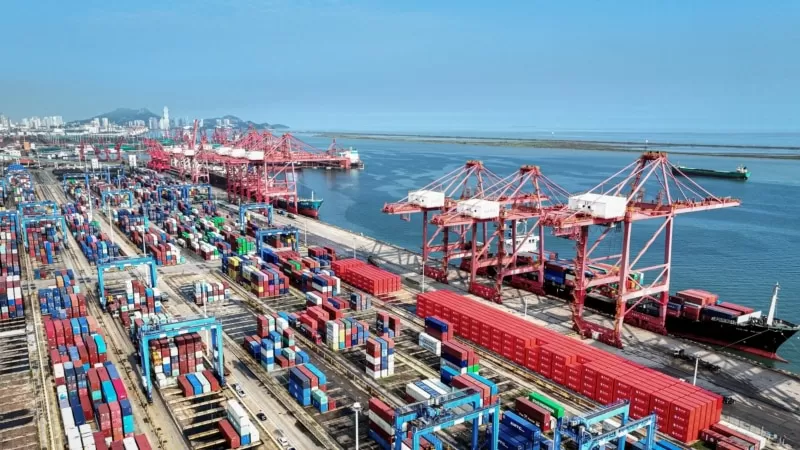BEIJING — China’s economy has been facing challenges in recent years, with slowing growth and mounting debt. In response, the Chinese government has implemented various stimulus measures to boost the economy. However, former central bank adviser Liu Shijin warns that these efforts may come with a cost and must be accompanied by necessary reforms to ensure sustainable economic growth.
At a forum on Tuesday, Liu emphasized the importance of combining stimulus with reforms. He stated that while funds should be used to enhance critical areas for long-term economic development, it is also crucial to address underlying issues and make necessary changes for sustainable growth.
One of the areas that Liu highlighted as a priority for reform is basic healthcare services for China’s 300 million internal migrant workers. These workers make up a significant portion of the country’s population and are facing a significant public healthcare shortfall. By improving access to healthcare, the government can not only improve the well-being of its citizens but also boost productivity and contribute to economic growth.
In line with this, Reuters reported that China is considering approving new debt issuance of over 10 trillion yuan ($1.4 trillion) in the coming years. This will help tackle hidden local debt, fund buybacks of idle land, and reduce the large inventory of unsold flats. However, analysts believe that these efforts will serve as a stabilizer for the economy rather than an instant growth booster.
It is important to note that China is still grappling with the debt overhang from previous stimulus measures. In 2008-2009, a 4 trillion yuan ($575 billion) spending package helped shield the economy from the global financial crisis but also resulted in local governments accumulating high levels of debt. This highlights the need for caution and careful planning when implementing new stimulus measures.
Liu also suggested that China could issue ultra-long-term treasury bonds within the next two years to generate at least 10 trillion yuan ($1.4 trillion) worth of stimulus. This would provide a more sustainable and long-term solution to boost the economy.
In July, Chinese leaders outlined a series of reforms aimed at promoting economic growth, including developing advanced industries and improving local government finances. However, the speed at which these reforms will be implemented remains uncertain.
One of the key challenges for China’s economy is to expand its middle class. Currently, the country has around 400 million middle-class citizens, which is only about a third of its population. Liu believes that by speeding up urbanization and addressing disparities in urban-rural public services, China can expand its middle-class group to 800-900 million in the next decade. This will not only help boost domestic consumption but also contribute to sustainable economic growth.
While implementing stimulus measures, Liu also cautioned against the use of “helicopter money,” which refers to direct cash handouts to residents. He argued that this would primarily benefit wealthier individuals, while low-income groups would see minimal relief due to their basic needs. Instead, Liu suggested using funds for targeted and strategic investments that can have a more significant impact on the overall economy.
In conclusion, China’s stimulus efforts are necessary to boost economic growth, but they must be carried out alongside necessary reforms. The government must carefully plan and implement measures to address underlying issues and promote sustainable growth in the long run. By prioritizing key areas such as healthcare and expanding the middle class, China can ensure a more balanced and prosperous economy for its citizens.


